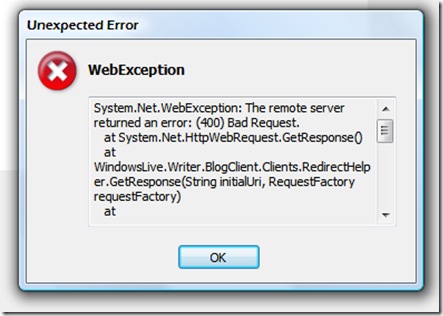It's not everyday I come across something as full of nonsense as this article. I'm quite surprised the author hasn't taken it down by now because of how wrong it turned out to be. Fine, he didn't write the original, but he's definitely hoping. Just taking a look around the site really goes to show the guy has some serious "short man virtual machine" syndrome. I use what I like. I don't like Java. I don't use it. Clearly, he doesn't like .NET. Its my very humble opinion that if you don't like it just don't use it. It shows a serious lack of maturity, in my mind, to come up with the usual sort of tabloid "101 Reasons why Java is better than .NET" rubbish.
I decided, with an open mind, I would take a look at some of the reasons. Here are two of them that I noted before I just decided to stop:
"26. Better Support for Peer to Peer Networks
Java is used extensively to build Peer to Peer (P2P) networks. There are open source java implementations of the gnutella protocol. JXTA is an emerging standard for P2P networks and uses Java as its prototype implementations. Limewire and Kazaa downloaded hundreds of millions of times are written in Java and are among the more popular P2P clients available to date."
Errm.... what? Thats like saying, use Microsoft Operating Systems because there is more software out there? To me, points like that obscure what should be the core reasoning of the argument. It should be about the language features/advantages. Java is better because the GC of the virtual machine is more advanced... or whatever.
... And ...
"47. Open Source Java Compilers and Parsers
There are several open source java compilers, many written also in java (i.e. Jikes, Eclipse, AspectJ, Kopi, Kiev) that make it easier to develop tools like Auditors, Metrics, Code Coverage and Refactoring. Furthermore, it makes is easier to develop embedded languages like SQLJ.
By contrast .NET's CodeDOM assembly isn't able to parse .NET languages like C# or VB. It can only generate code, however what real gain is that, when writing out strings will suffice?"
There is so much wrong with the last statement in his point, its not even funny. Again, another uninformed view of things. CodeDOM while not fantastic, can still be used to write (largely) language agnostic code that targets the .NET framework. Think Code Generators. You want to do that using strings. Good luck... let me know how that works out for you. He should have contrasted the shortcomings of CodeDOM vs. the other offering if he wants to make a debate of it. And he should certainly think twice about finishing off a point with utter bollocks. Even though he may have been 100% correct with the first part, you kind of loose the point, and you have to wonder just what other rubbish he is trying to spit out.
Sure, like I said, its a 2003 article, and sure, he has a little tongue-in-cheek stab at "I'm open for debate" with
"People who hate the list have also argued that some reasons are invalid because over time .NET will catch up. All I can say to this line of argument is that this is a list about "Today, the Here and Now". We can always revisit the list a year from now, and just maybe, there may be less reasons why Java is better."
But the truth is, back then, he was/is trying to compare apples with oranges. To me that doesn't work. Compare things when they are on the same level.
All of this, however, is nothing when you read this article. I mean, goodness. Taking that last little bit into account, it seems he is worried that should there be better IDE tools that target the .NET framework (and we are not even talking about language enhancements), his beloved Java may get the shaft. You have to wonder that, if he thinks the release of a 3rd party tool becoming available on BOTH platforms, is a worrying thing, Java may not be "all that" he has built it up to be in the first place. He is/was clearly worried about something. And looking back it it now - he's had every reason to worry. .NET is flying fast and furious. And no, its not because now the IDE has built in code refractor support and/or JetBrains making swanky tools available for it.
Don't get me wrong - if you use Java good on you. If you enjoy it, even better. I didn't. I preferred .NET. Don't try and "convert" me, I wont try and "convert" you. And if you are going to try, do it with a proper discussion. I welcome it. I'm not rooted in one language, I'll use the right tool for the job. If that's Java, so be it.
Last word on the matter...
I really dislike idiot zealots.
